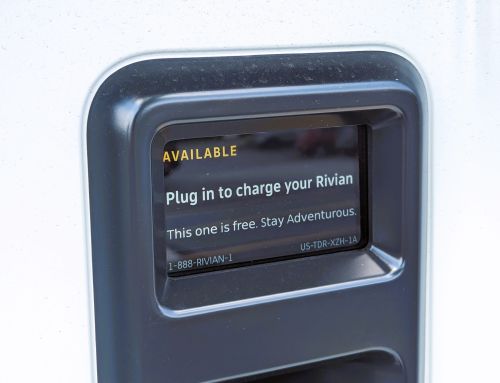Can we improve charging infrastructure?

EV News
Building the infrastructure the US needs proves to be a daunting task, but it is possible. Right now, cars and trucks produce around one-fifth of greenhouse emissions in the U.S. EV adoption has grown tremendously in recent years, but around half of US consumers say that range anxiety is a huge barrier for them finally making the switch to EVs.
To meet the demand of an expected 48 million EVs on the road by 2030, the U.S. would need twenty times more chargers in a decade than the U.S. has currently. This article by McKinsey lays out the author’s top 7 recommendations to encourage the installation of charging infrastructure throughout the nation.
- Promoting equity in public EV charging
- Building charging stations where people need them
- Aligning charging speeds with needs
- Making public charging affordable
- Enhancing the experience of public charging
- Integrating chargers with the power grid
- Creating opportunities for charging business
In other EV News
- Volkswagen has increased its EV sales by a whopping 65% for the first quarter of 2022 in comparison to the previous year.
- Mercedes’ second EV has been launched, the EQS sport utility vehicle. Expect the SUV to go on sale in the fall and offer 410 miles of range to consumers.
- Mercedes is also focused on efficiency and aims to launch electric vehicles consuming 10 kilowatt-hours of energy per 62 miles (100 km). The announcement comes as Mercedes just completed a 1,000 km single charge journey using 8.7-kilowatt-hours per 100 km in its Vision EQXX.
- Although battery costs have been rising from $105 per kilowatt-hour to $160, electric vehicle sales have remained steady.
- This week, BMW unveiled details about the i7. The i7 is anticipated to hit showroom floors in Q4 of this year with a price tag of $119,300.
- California leads the way with the most EVs registered, at over 400,000 according to NREL. It is no surprise that CA would be leading with additional ways to expand EVs. Last week, California launched a proposal to ban new gas-powered cars by 2035 amid an energy crisis within the state.
- Frito-Lay will introduce 40 Ford eTransit electric delivery vehicles in the Dallas Fort Worth area. Through the new fleet, the company will cut 390 tonnes of greenhouse gasses per year. Frito-Lay has already achieved 100% renewable energy at all its plants in the US.
- Teased last week, Lincoln officially unveiled its electric SUV dubbed Star. Lincoln plans three EVs arriving by 2025.
- Tesla’s FSD Beta has over 100,000 drivers actively participating, and Elon Musk is very confident that Tesla will achieve full-self driving by the end of this year. In other milestone news, Tesla reported $18.76 billion in revenue for Q1 and also record margins. This beat analysts’ expectations.
EV of the Week
The next Formula 1 race is this weekend at Imola, so therefore I felt it was appropriate to have a race car for the EV of the Week. I am hoping this will one day translate to an electric 911. We chose the Mission R as the EV of the Week for its vision and the future of motorsport. In qualifying mode, the Mission R will produce 1073 horsepower. It sounds like pole position to me. Check out the video of the Mission R in action. -John @ Mobility EVo
-
429-hp unit on the front axle
-
644-hp motor powering the rear
-
Battery- 80.0-kWh
-
Track Time- 30 to 45 minutes of on-track action
-
0-62 mph in 2.5 seconds
-
Top Speed- 186 mph
-
900-volt system to charge from 5 to 80 percent in just 15 minutes
AV Corner
Does anyone else wonder how I can order something on Amazon on Sunday and have it at my front door by Monday morning? How in the world does that happen? It will be even more efficient and streamlined with AVs entering the picture. Amazon is not the only company testing AVs for delivering goods. These 7 companies are currently testing the capabilities:
- Walmart
- Amazon
- CVS Pharmacy
- Stop & Shop
- Postmates
- AutoX
- Kroger
In other AV News
- The AV industry is due for a rethink about how the innermost parts of an autonomous vehicle operate. The industry is trying to move away from ECUs, aka the hardware of cars, to advanced driver assistance systems that best utilize functionality, comfort, and driving performance.
- Roy Cooper, an Army veteran, has begun developing an autonomous vehicle that will increase mobility for people with disabilities. Cooper leads the University of Pittsburgh’s Human Engineering Research Laboratories, which has recently received a $750,000 grant from the Paralyzed Veterans of America to start production of a prototype AV.
- Carolinians! Argo AI plans to establish a new $2.6 million test facility in Greenville, South Carolina. The AV company wants to build a new closed-course track in the SC Technology and Aviation Center. In conclusion, I am the happiest person alive right now.
- Mobileye’s self-driving robotaxis are ready to go in Israel. The company published a video demonstrating its AV technology maneuvering around Jerusalem – interacting with traffic developments and other drivers successfully.
- Audi’s “Urbansphere” is a new concept car described as a ‘lounge on wheels.’ The concept AV would only be for city riders in high traffic areas as a third living space and office.








